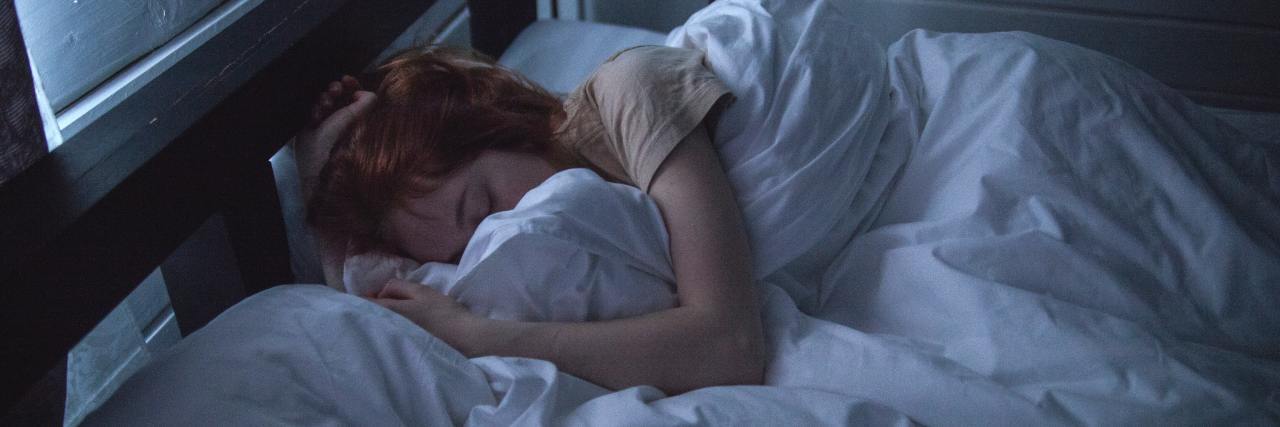When I talk about the physical symptoms of my depression or how hard it makes my daily life, I usually get confused stares from people.
“What physical symptoms? It’s a mental illness. It’s in your head, how can it make your life harder?”
Yes. It’s a mental illness. But believe me, there are physical symptoms, and they can be completely debilitating some days.
Depression is more than just dark thoughts and excessive crying. It’s emotional numbness, it’s constant fatigue, it’s feeling like you have a weight on your chest, some kind of black gooey monster that’s pumping all your energy, motivation and will to live. It’s gravity pinning you down and making every single step feel like you’re moving a mountain.
I started medication a few weeks ago, and even though the antidepressants help me a lot with my anxiety and my suicidal thoughts, I feel they have made the physical symptoms worse. But to me, it’s still better than actively wanting to die.
When people ask me how it affects me physically, all I have to do is to talk about my morning routine.
I have to wake up at 6:40 a.m. to go to school, but I put my alarm at 6 so I can let myself drift back to sleep again. It gives me the impression that I still have time, and it lets me not fall back into too deep of a sleep. I put another one at 6:20 to let myself emerge in the hopes that, 20 minutes later, I’ll have enough energy and motivation to leave my bed. I always end up getting up late anyway, but I need this routine to not be even later.
After the trouble I go through only to get out of bed, I take my meds and go to the kitchen to have breakfast. On my way there, I evaluate my state: is it a good day where I’m “high-functioning,” or is it a bad one where I’m in survival mode? If it’s a good day, I let myself sit down to have breakfast. If it’s a bad day, I eat standing up to save myself the 15 minutes it’s going to take me to get back up when I’m done.
I usually don’t have a lot of trouble doing my makeup, but getting dressed is another struggle. If there isn’t an outfit I was excited to wear the night before, my inability to make decisions makes the whole endeavor ridiculous. I start by checking the weather on my phone and then, it takes me so much time just to pick pants. It takes me twice as much time to motivate myself to put them on and leave my comfy pajamas. The same goes with the shirt. I become overwhelmed with self-loathing because I’m not even capable of doing something as simple as getting dressed, but I manage to do it anyway.
But wait! There’s more!
I test the temperature outside by putting my hand out the window and always end up changing into warmer clothes — I get cold easily. But then, I’ll think about the temperature in the classroom and get changed again.
And now, I’m late.
I rush out of my apartment, and as soon as I get out, I realize I was wrong about the weather. I go back to change my jacket at least twice before finally being ready to go. I rush to the bus stop before I realize that while I was worried about something as petty as what I was going to wear, I forgot to take my headphones for my sound editing class. Another trip back to the apartment and I’m now 20 minutes late.
And all of that happens only within the first 2 hours of my day.
So yes, depression is disabling. What seems like simple tasks for you can seem impossible for me. It takes away my ability to make decisions or concentrate. It makes me so tired all the time and no matter how much sleep I get, I always end up falling asleep in class multiple times a day.
Don’t assume people don’t struggle just because their illness is invisible.
Photo by Ivan Oboleninov from Pexels

